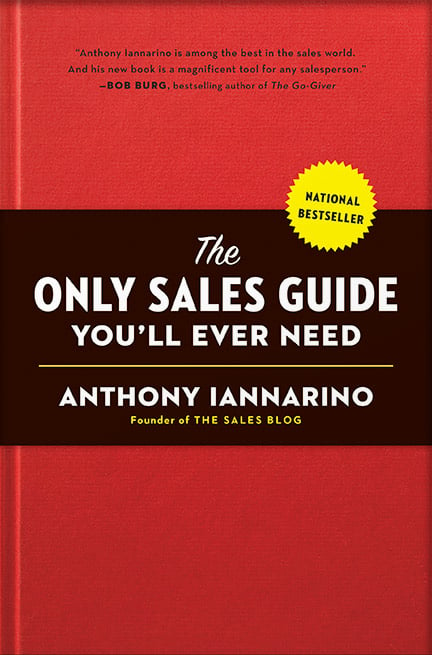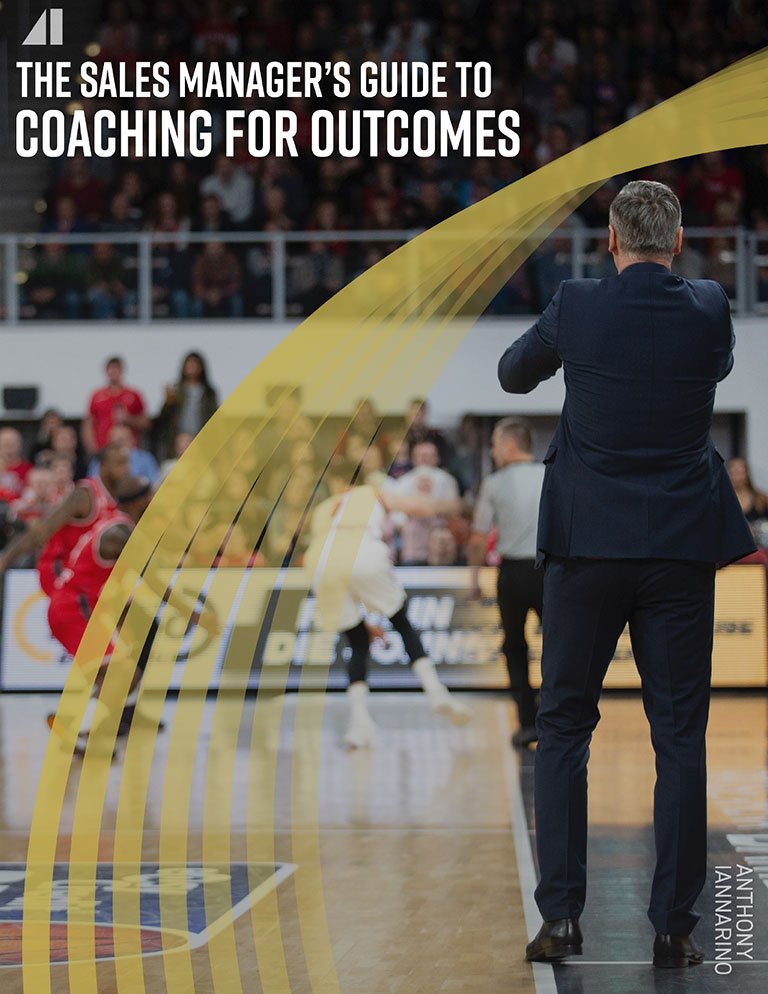The Gist:
- Preparation can improve your ability to deal with client conversations, especially difficult ones.
- It is critical that you know your desired outcomes, as well as what your client needs from you.
- Designing and rehearsing your talk tracks will provide you with confidence and a chance to tighten up your arguments.
I almost called this post “How to Have a Difficult Conversation with Your Client.” But the advice here is designed to be helpful in many client conversations, not just the tough ones. The key is preparation.
Generally, salespeople don’t spend enough time preparing for the conversations they have with their clients and prospects, even though conversational effectiveness makes the difference between meeting or missing their goals. My preparation structure is simple and straightforward, but following it will improve your ability to achieve your goals.


1. Know Your Desired Outcome
The very first thing you should do when preparing for a client conversation is to know your outcome—your goal for the conversation. You are going to design your language choices based on what you believe your client needs to know to persuade them to agree to your request later.
You increase your ability to succeed in client conversations when you have a target outcome. You reduce your success by not beginning with the end in mind.
2. Determine What Your Client Needs from You
More salespeople will do step one than step two, recognizing that it’s important to have a goal for every conversation. But your client has their own needs too, and they won’t buy from you out of the goodness of their heart. To generate the outcome you need, you have to create enough value for your client that they also get what they need from you.
The reason many sales organizations devote time and attention to “the buyer’s journey” is because it provides guidance on what your client might need from you. It’s a hint as to what conversation they might perceive as being valuable. In difficult client conversations, you need to do even more work to ensure the client gets what they need, even if it requires you and your company to get creative. That work starts with understanding their needs in the first place.


3. Draft Your Talk Tracks
Once you know your outcome and your client’s needs, start your formal preparation by drafting your talk tracks. If you have never adopted this practice, it is simple to execute and provides you with greater confidence and a much higher chance of success. No matter how good you are at improv, there is no benefit to you, your goals, your client’s experience to show up for an important conversation unprepared.
You can start by making a list of bullet points that you believe will help you make a case for the outcome you are pursuing. Once you have your bullet points, write a sentence or two that you believe convey the ideas both positively and powerfully. Finally, read the sentences out loud and analyze them critically. When you recognize that a phrase or idea falls flat, make the necessary adjustments to improve it until you are confident in the words—and in your ability to succeed with them.
4. Identify Facts and Data to Support Your Assertions
Of the most common mistakes in meeting prep is not memorizing the facts and data that would strengthen your talk tracks, your argument, or your theory. In a world where endless data is accessible to you (and your client), there is no excuse for not including objective truths.
Not all people are easy swayed by facts and data, however. When your client is in that group, you may have to prepare for a values-based approach, one that include subjective truths that they may find more compelling. A large part of preparing well for important conversations is knowing your client or your prospect.


5. Draft the Language for Your Ask
At the end of your conversation, you must do the needful: ask for what you believe is necessary for you to achieve your goal of helping your client reach their goals. All of your preparation needs to support your ask.
As part of that ask, make sure you include how your client benefits from agreeing to your ask. This concept is called the “trading value rule,” which states that anytime you ask your client for something, you have to tell them how agreeing will actually help them too.
But don’t stop here. The last step is the most critical action, and the one most salespeople avoid: rehearsing your talk tracks.
6. Rehearse Your Talk Tracks
One of the very best ways to achieve your sales outcomes is to rehearse your talk tracks with another person. Your partner might be a colleague, your manager, or someone else with the knowledge or experience to effectively critique your content and your delivery.
The first thing you will notice during rehearsal is that you don’t like some of what you said. This is the primary goal of rehearsing: identifying weak spots so you can change them to something stronger. The more confident you are with the words, the more confident you will be when you repeat them to your client.
A secondary benefit is improving the clarity of your talk tracks. Your rehearsal partner won’t always understand what you are saying and why you are saying it. Explaining the points you are trying to make provides you with another chance to tighten up your arguments so they target your outcomes more effectively.
Do Good Work:
- Selling comes with a certain amount of conflict, which you must work out during conversations.
- When you sell a certain set of outcomes, you are accountable for the problems and challenges that come with the change you are enabling.
- The only tools you have available to handle difficult conversations are diplomacy, caring, and effective language.

Get the Free eBook!
The Sales Manager's Guide to Coaching Outcomes
The success of the team depends on the coach's ability to bring the players together, teach, and lead. Invest time in improving your leadership with this eBook.
Download Now







.jpg?width=768&height=994&name=salescall-planner-ebook-v3-1-cover%20(1).jpg)


